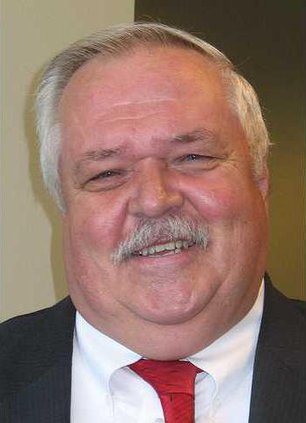0606CorpsAud
Hear Jerry Barnes address the Metropolitan North Georgia Water Planning District.ATLANTA — The man who has the task of updating the 50-year-old operating manuals for two river systems in Georgia said Thursday that the region has abundant water resources, they just need to be where people need them and can use them.
Jerry Barnes, who retired in 2006 as chief of the operations division of the headquarters of the U.S. Army Corps of Engineers in Washington, was appointed in November by Army Secretary Pete Geren to rewrite the manuals, portions of which were written at the time Lake Lanier was built in 1957.
Barnes said Georgia was coming out of a moderate to slightly above average filling season for the rivers.
"But I don’t see the Atlanta area in imminent danger of running out of water as we enter the hot, dry season," Barnes said. "The weather appears to be trying to break this drought."
Barnes said trying to fix the operational side of the river systems is challenging.
"The motive here is to make sure this thing (rewriting the manuals) is done fairly," Barnes told officials of the Metropolitan North Georgia Water Planning District meeting Thursday in Atlanta.
He said that during times of drought, the corps has difficulty in meeting the task of water storage. He said the newly implemented interim operating plan is an indication of how sensitive that job can be.
"When we published that (operating plan) and the impact hit various folks, nobody is happy. I think that identifies the challenge we face," he said.
Barnes said the corps was responsible for allocating storage.
"The actual allocation of water is a sovereign state responsibility," Barnes said, adding that he was present for some of the discussions between Georgia, Florida and Alabama between November and March.
He said he has told Gov. Sonny Perdue of Georgia and Gov. Bob Riley of Alabama that a resolution on water issues by the states would enhance the effectiveness of the revised manuals.
While not disclosing the specifics, Barnes said the closed-door negotiations in the fall and winter were positive and productive, and he believed there could have been a breakthrough if talks had been extended. He said he has offered to help restart the talks, if needed.
Barnes said the two river systems, the Apalachicola-Chattahoochee-Flint and the Alabama-Coosa-Tallapoosa, are operating from a patchwork that includes portions of the 50-year-old books and a revised 1989 manual that was later rejected. The rest of the operation is done by institutional knowledge and he referred to corps personnel as "heroes" for their ability to operate with long outdated information.But while the manuals are badly needed, he said they will not be a cure-all. "I don’t foresee the updated manuals solving all the water issues that exist in these three states," Barnes said. "It’s just beyond the scope of what we have authority to do."
Barnes believes that updating the manuals will be a two-and-a-half to three-year process and could go longer.
He called Lake Lanier "the gorilla" of the Apalachicola-Chattahoochee-Flint system, as it is designed to store the most water on the system. "It would be a god send, if a slow-moving, low-wind tropical event would find a home over Northeast Georgia and camp out there for a week, or maybe two weeks," he said.

